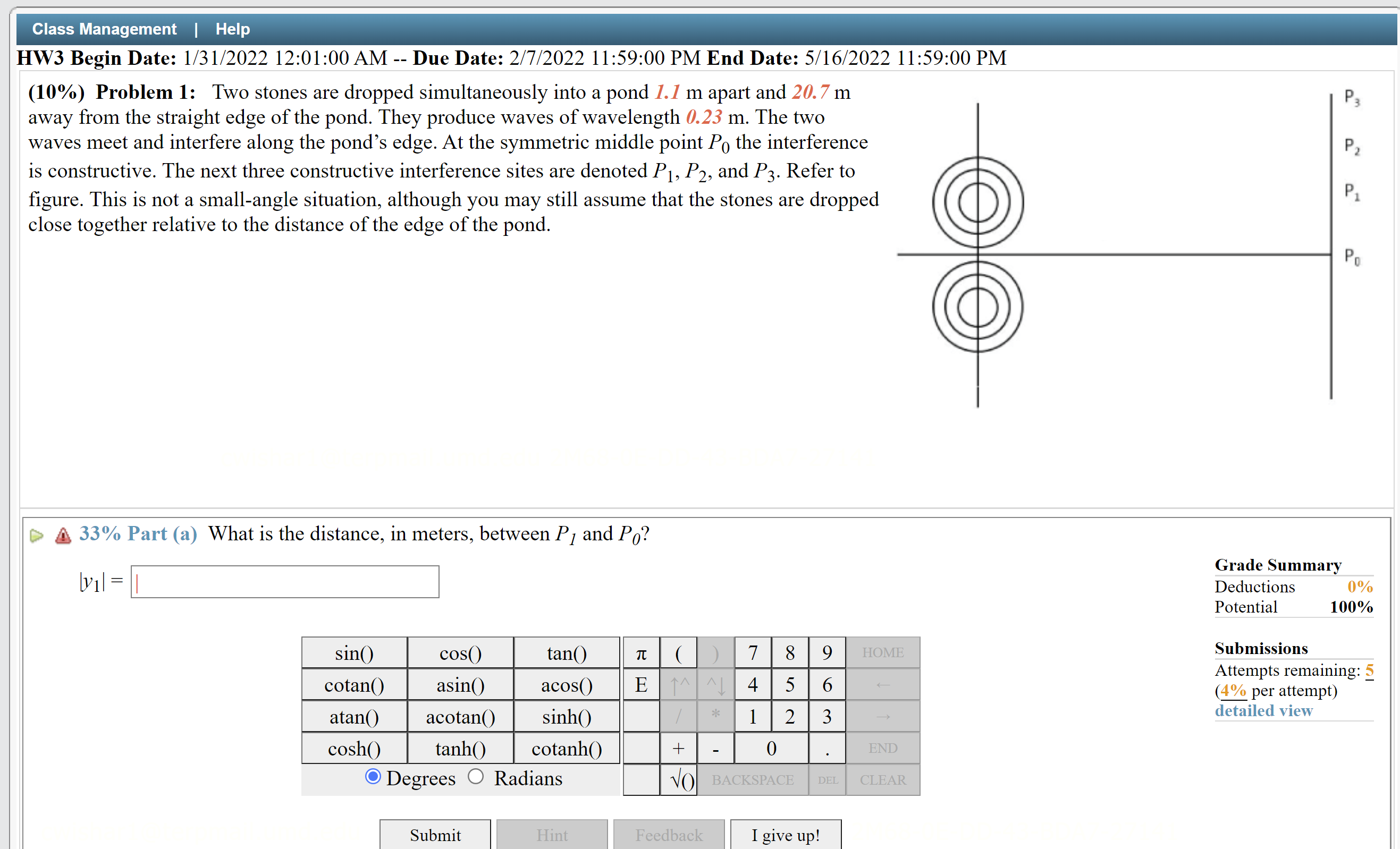Answered step by step
Verified Expert Solution
Question
1 Approved Answer
Two stones are dropped simultaneously into a pond 1.1 m apart and 20.7 m away from the straight edge of the pond. They produce waves
Two stones are dropped simultaneously into a pond 1.1 m apart and 20.7 m away from the straight edge of the pond. They produce waves of wavelength 0.23 m. The two waves meet and interfere along the pond's edge. At the symmetric middle point P0 the interference is constructive. The next three constructive interference sites are denoted P1, P2, and P3. Refer to figure. This is not a small-angle situation, although you may still assume that the stones are dropped close together relative to the distance of the edge of the pond.

Step by Step Solution
There are 3 Steps involved in it
Step: 1

Get Instant Access to Expert-Tailored Solutions
See step-by-step solutions with expert insights and AI powered tools for academic success
Step: 2

Step: 3

Ace Your Homework with AI
Get the answers you need in no time with our AI-driven, step-by-step assistance
Get Started


